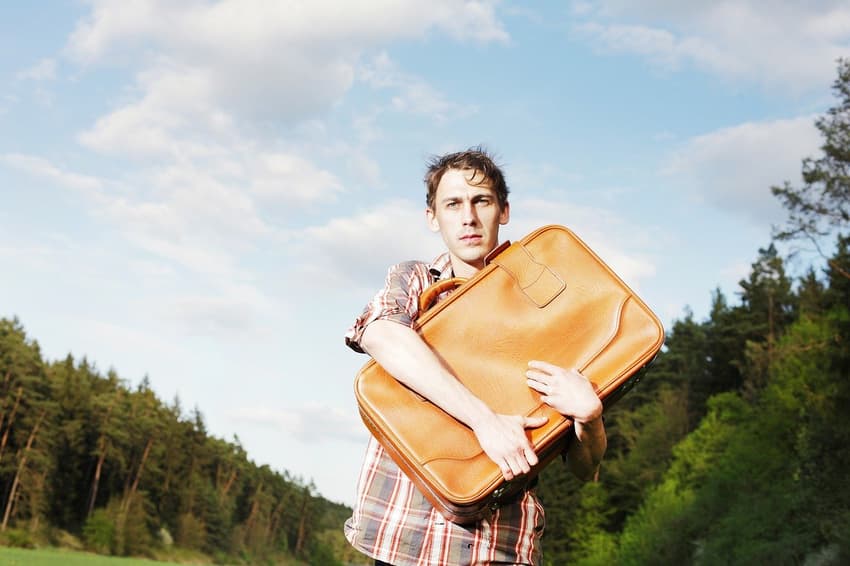Why does Switzerland have two kinds of C-permit holders?

The C permit is the 'highest' permit in Switzerland and a stepping-stone to citizenship. But not everyone who has it is an immigrant.
This permit, to which all foreign residents who want to settle permanently in Switzerland aspire, proffers its holders sweeping rights.
Among them are limitless employment opportunities, being able to change jobs and cantons of residence, setting up own businesses, buying real estate without any restrictions, and having access to educational grants.
The only thing that separates a C permit from a citizenship is the right to vote or run for office.
READ ALSO: What's the difference between permanent residence and Swiss citizenship?
If you are an EU / EFTA national, or an American or Canadian citizen, and live in Switzerland under a B permit, you will be eligible for a C after five years of continuous residence. The others must reside here for 10 years before being able to apply for an ‘upgrade’ from B to C.
While the C permit is typically issued to people born abroad who are eligible to settle permanently in Switzerland, hundreds of thousands (updated figures are not available) of those actually born in Switzerland have this permit as well.
Switzerland-born foreigners
Those born in Switzerland of foreign parents, will not be automatically Swiss.
Even though they spend their entire lives in this country, speak the local language fluently, and are well integrated, they still must have a work or residency permit, like ‘regular’ foreigners do.
Until and unless they become naturalised in Switzerland, they will continue to be citizens of the country from which their parents immigrated, even if they themselves have never lived there.
Are these foreigners ‘equal’ to other permit-holders or do they get special rights?
For all legal purposes, they are just as ‘foreign’ as those who came here from abroad — in other words, they are foreigners without actually being immigrants, and their status in Switzerland is tied to their permits.
The only ‘break’ they get is in terms of naturalisation procedures: those considered as ‘third-generation’ foreigners — that is, whose grandparents immigrated to Switzerland — can apply for a simplified / facilitated process. The second generation, however, must follow the more arduous ‘regular’ naturalisation route.
READ ALSO: Third generation fast-track naturalisation in Switzerland
Perhaps the strangest rule these people must abide by is the one that extends to all C-permit holders, regardless of where they were born: if they leave Switzerland for more than six months without putting their permit on hold, they risk having the permit withdrawn.
This means, at least theoretically, that someone who was born in Switzerland and has continually lived here, might lose their permit and have to move to the country of their ancestors.
Comments
See Also
This permit, to which all foreign residents who want to settle permanently in Switzerland aspire, proffers its holders sweeping rights.
Among them are limitless employment opportunities, being able to change jobs and cantons of residence, setting up own businesses, buying real estate without any restrictions, and having access to educational grants.
The only thing that separates a C permit from a citizenship is the right to vote or run for office.
READ ALSO: What's the difference between permanent residence and Swiss citizenship?
If you are an EU / EFTA national, or an American or Canadian citizen, and live in Switzerland under a B permit, you will be eligible for a C after five years of continuous residence. The others must reside here for 10 years before being able to apply for an ‘upgrade’ from B to C.
While the C permit is typically issued to people born abroad who are eligible to settle permanently in Switzerland, hundreds of thousands (updated figures are not available) of those actually born in Switzerland have this permit as well.
Switzerland-born foreigners
Those born in Switzerland of foreign parents, will not be automatically Swiss.
Even though they spend their entire lives in this country, speak the local language fluently, and are well integrated, they still must have a work or residency permit, like ‘regular’ foreigners do.
Until and unless they become naturalised in Switzerland, they will continue to be citizens of the country from which their parents immigrated, even if they themselves have never lived there.
Are these foreigners ‘equal’ to other permit-holders or do they get special rights?
For all legal purposes, they are just as ‘foreign’ as those who came here from abroad — in other words, they are foreigners without actually being immigrants, and their status in Switzerland is tied to their permits.
The only ‘break’ they get is in terms of naturalisation procedures: those considered as ‘third-generation’ foreigners — that is, whose grandparents immigrated to Switzerland — can apply for a simplified / facilitated process. The second generation, however, must follow the more arduous ‘regular’ naturalisation route.
READ ALSO: Third generation fast-track naturalisation in Switzerland
Perhaps the strangest rule these people must abide by is the one that extends to all C-permit holders, regardless of where they were born: if they leave Switzerland for more than six months without putting their permit on hold, they risk having the permit withdrawn.
This means, at least theoretically, that someone who was born in Switzerland and has continually lived here, might lose their permit and have to move to the country of their ancestors.
Join the conversation in our comments section below. Share your own views and experience and if you have a question or suggestion for our journalists then email us at [email protected].
Please keep comments civil, constructive and on topic – and make sure to read our terms of use before getting involved.
Please log in here to leave a comment.